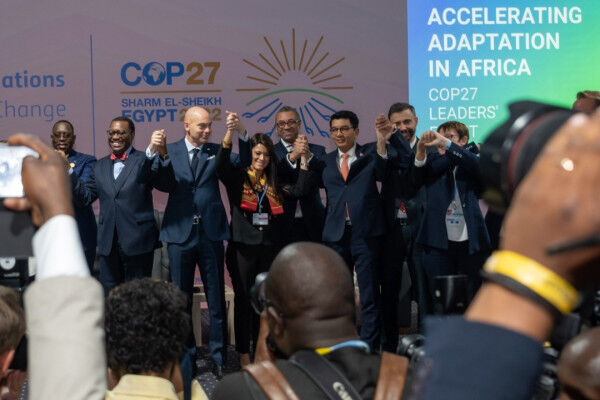 Civil society groups have alleged that the rich industrialised countries are also shirking on their responsibility to provide adequate finance to help poorer nations adapt to and recover from the losses and damages caused by climate disasters.
Civil society groups have alleged that the rich industrialised countries are also shirking on their responsibility to provide adequate finance to help poorer nations adapt to and recover from the losses and damages caused by climate disasters.
Head of Global Political Strategy, Climate Action Network International, Harjeet Singh, who spoke yesterday, at the end of the G7 ministers’ meeting on climate and energy concluded in Sapporo, Japan, said: “While G7 ministers recognised the need to scale up renewable energy, their commitment to phase-out of fossil fuels is frivolous and full of loopholes.
“The calls from scientists and activists to urgently phase out of fossil fuels and support a just and green transition in developing countries, seemed to have fallen on deaf ears.
“The richest and historically most carbon-polluting countries in the world, the G7, for the first time ever committed to quantitative targets for key renewables by 2030 underlining the need for early action in the global climate crisis. This is welcome. The objective to grow clean offshore wind power about six times annually in the next years and solar power almost three times yearly compared to 2022, is a breakthrough and in line with recent economic findings by the IPCC on the most cost-effective carbon pollution reduction.”
Senior Adviser Energy, Climate Action Network International, Dr. Stephan Singer, said: “However, there is no measurable agreement by the G7 on other sustainable renewable energy resource use, like onshore wind, geothermal. And no target on economy-wide energy efficiency, which is critical to remain on a track for meeting the 1.5 C survival target in next decade. Further, the offshore wind and solar targets need to be yearly monitored and verified.
The G7 also failed to significantly enhance financial and technical assistance to poorer nations to rapidly scale up renewable energy.”
For Executive Director of the Fossil Fuel Non-Proliferation Treaty Initiative, Alex Rafalowicz, “Investments in the gas or any other fossil fuel sector cross the redline of the Paris climate goals. New gas investments are a huge risk to our climate, to local communities, to energy price hikes, and ultimately to the global economy as potential stranded assets. Rather than endorsing new gas investments, G7 ministers should be negotiating the constraint of fossil fuel supplies and an equitable phase-out as the only real way out of the climate crisis.
“The young people these G7 countries are supposed to serve have made a clear demand for no new fossil fuel investment and called for a Fossil Fuel Non-Proliferation Treaty. By allowing countries to work together to move away from coal, oil and gas, a Fossil Fuel Treaty is the realistic and feasible pathway to energy security, affordability, and emission reductions, and to protect our youth and new generations.”






